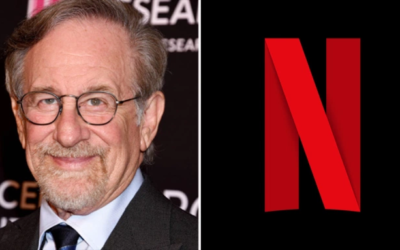Source: Variety
“Memento”; “The Dark Knight”; “Inception”; “Interstellar”; “Dunkirk”; and “Tenet”. All of these films were written and directed by Christopher Nolan, a filmmaker who has been a long revered figure among those who consider themselves admirers of the cinematic art form. This appreciation has frequently extended to various voters of the Academy Awards (as well as various other award-giving organizations), as all of the aforementioned films have at least been nominated for a solid handful of these very awards, with many of them winning one or more of them. In spite of these film’s success though, Nolan has historically been unable to make a film that the Academy of Motion Picture Arts and Sciences has deemed worthy enough of the Best Picture title. He’s certainly come close in the past; both “Inception” and “Dunkirk” received nominations for this accolade, and the absence of “The Dark Knight” among the nominees for the 2009 ceremony led to an outcry large enough to sway the Academy into expanding the list of yearly nominees from five to at most ten. Still, none of them were quite strong enough for voters to declare them the best of the best, leaving Nolan without a Best Picture win… or at least that used to be the case. As of Sunday, March 10th, 2024, Christopher Nolan can no longer be classified as a filmmaker who hasn’t made a film that has won the Academy’s Best Picture prize. The film that finally allowed him to achieve this long-awaited milestone: the epic biographical drama “Oppenheimer”.
On the one hand, “Oppenheimer” is in many respects the kind of film that Academy voters very much like to gravitate towards: it’s a period piece detailing one of the most infamous moments in human history (specifically the creation of the atomic bomb), and the film’s generally somber tone allows it to present itself as a serious and meaningful work of cinema, one that all but outright demands some prestigious recognition. On the other hand, it’s also a major blockbuster release, one that, while unable to cross the highly coveted billion dollar mark at the box office, does nonetheless sit comfortably as the third highest-grossing film of 2023 (in terms of worldwide sales). Academy voters have, in recent years, not been that inclined to honor those films that have already ranked in millions of box office dollars – in fact, not since 2003’s “The Lord of the Rings: The Return of the King” has a Best Picture winner made so much money at the box office – but that’s certainly not the case with this most recent decision. With such a substantial global gross and now a Best Picture award to call its own, “Oppenheimer” could very well be one of the most successful Best Picture winners in quite some time.
Going into the ceremony with thirteen nominations altogether, “Oppenheimer” ulitmately won not only Best Picture, but six other awards for a total of seven, the most of any film to win over the course of the evening. Nolan himself picked up an additional prize for Best Director, while two of the film’s actors, Cillian Murphy and Robert Downey, Jr., were named Best Actor and Best Supporting Actor respectively. In addition to those wins, “Oppenheimer” was also able to secure victories in the categories of Best Cinematograpy, Best Film Editing, and Best Original Score. These are all impressive achievements, but many would agree that they are all additional garnishes to the film’s greatest accomplishment, winning Best Picture. Nolan made sure to make this moment count, speaking of his passion for film during his acceptance speeches and going to great lengths to advocate for the continued relevance of theatrical film-going. “Movies are just a little bit over 100 years old,” Nolan stated as he stood in front of several ceremony attendees after receiving his prizes. “We don’t know where this incredible journey is going from here, but to know that you think that I’m a meaningful part of it means the world to me.”
“Oppenheimer” may have been able to blow away most of its competition, but it wasn’t the only feature that was able to score multiple Academy Award wins before the end of the ceremony. Entering the event with eleven nominations beforehand (the second highest of any film, trailing only Nolan’s work) was Yorgos Lanthimos’ science fantasy black comedy “Poor Things”, which managed to win four Oscars and become the second most awarded film of the evening. These accolades were primarily for the film’s artistic achievements, as “Poor Things” was awarded with Best Production Design, Best Costume Design, and Best Makeup and Hairstyling, but on top of all these, lead actress Emma Stone was named Best Actress (giving Stone her second win in this category after 2016’s “La La Land”). This particular win was not without controversy – many were hoping that Lily Gladstone would take the prize for her performance in Martin Scorsese’s “Killers of the Flower Moon” – but either way, Stone was more than overwhelmed as she accepted the award, expressing her gratitude to her fellow castmates and crew in doing so, claiming that she was“so deeply honored to share this with every cast member, with every crew member, with every single person who poured their love and their care and their brilliance into the making of this film.”
Elsewhere throughout the ceremony, non-English language films made up a surprisingly high number of winners. Of course, Jonathan Glazer’s Holocaust drama “The Zone of Interest” won the award for Best International Feature Film (which can only go to films made outside the United States), but it was also fortunate enough to win an additional prize for Best Sound. Justine Triet’s courtroom drama “Anatomy of a Fall”, another Best Picture nominee, also managed to pick up a win for Best Original Screenplay, while two Japanese films – Hayao Miyazaki’s “The Boy and the Heron” and Takashi Yamazaki’s “Godzilla Minus One” – each won for Best Animated Feature and Best Visual Effects respectively. Between these and films like J.A. Bayona’s “Society of the Snow” (which received two nominations but won for neither), it does seem like the Academy is starting to become more aware of the merits of international cinema, and while “Oppenheimer” winning Best Picture is very much a victory for the long-standing Hollywood studios, it may be too long before another foreign feature goes on to receive this exact same award and pride itself as the best film made that year.




